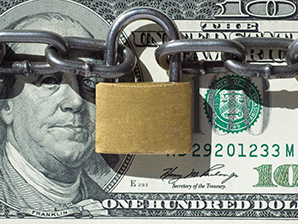U.S. stock indexes plummeted as oil prices rose on Tuesday as investors explored what the new Russian sanctions might look like.
The S&P 500 fell 0.5% and the Dow Jones Industrial Average fell 0.1%, the day after indicators were pulled up by stock technology shares. The tech-heavy Nasdaq Composite fell 1.3%.
"Markets are in a state of crisis," said Anthony Saglimbene, a global market strategist at Ameriprise Financial. “Investors are waiting for the Fed meeting minutes tomorrow. And next week is salary season. We need company updates to see how the first quarter went, and more importantly, what the vision is. ”
Twitter shares rose 4.7% after it said it would appoint Tesla Chief Executive Elon Musk to its board. This increase added to the 27% gain on Monday coming after Mr. Musk revealed that he owns a 9.2% stake in communications company.
Carnival rose 5.9% after reporting its busy booking week. The Royal Caribbean Ship Partner increased by 1.8%.
Reports of Russia's atrocities against Ukrainian citizens in the affected areas have shocked Western governments, who have called for more sanctions against Russia. Penalties have already sent oil prices up to more than $ 100 a barrel and increased prices for other commodities. That has added to the pressure on the economy, which is already facing high inflation for decades.
In the commodity market, Brent crude, the international oil price, rose 0.2% to $ 107.77 a barrel. The future of coal in Europe has risen by almost 10% to $ 287 a ton metric after the Wall Street Journal reported that the European Union would lift a ban on Russia's coal exports.
The Russian government has denied any wrongdoing on the part of Ukraine.
At the time, investors were scrutinizing the Federal Reserve - which has started the interest rate hike for the first time since 2018 — to see if it could tighten monetary policy adequately to reduce inflation but not so much as to damage the economy.
Another guideline for investors is the bond market, where the Treasury's 2-year yield recently rose above the 10-year yield - producing what is known as a curved yield curve. That is often seen as a prediction of a recession.
10-year average Treasury yield for U.S. Treasury up 2.466% on Tuesday from 2.409% on Monday. The two-year note yield increased to 2.473% from 2.426%.
In Europe, the Stoxx Europe 600 was slightly modified. Vestas Wind Systems exceeded 11% after Credit Suisse upgraded its rating to a renewable energy company. The bank said the European energy crisis could increase the demand for renewable energy. Some green energy companies are reviving, with Siemens Gamesa Renewable Energy rising by more than 9% and EDP Renovaveis adding more than 5%.
The Institute for Supply Management survey of procurement managers in the service sector should be held Tuesday at 10 a.m. ET. Economists expect the data to show that activity in restaurants, retailers and other service businesses will increase in March.
Investors were also looking at Fed officials' comments later Tuesday to get indications of how fast the central bank would raise interest rates. Fed Governor Board member Lael Brainard will speak, as do New York Fed President John William and Minneapolis Fed President Neel Kashkari.
In Asia, stock markets are generally on the move. In Japan, the Nikkei 225 gained 0.2% while in Korea, the Kospi index added less than 0.1%. Stock markets in Hong Kong and Mainland China closed on Tuesday for a public holiday.
They just revealed what they believe are the ten best stocks for investors to buy right now…
Courtesy Grizler.com




